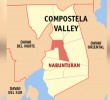I was, for the longest time, (and still am, to a certain extent) considered an ingglesera, an epithet that I did not particularly mind. In my mind it was, as I was growing up, an unavoidability. As a child I loved to read (and still do), but aside from the delightfully written and illustrated Ibong Adarna books (which I adored but eventually outgrew), there were almost no non-English books for young readers back in the day. My family also had the middle-class predilection for American TV shows and movies, encouraged in no small way by local programming dominated by noontime shows and melodramas.
While the mother tongue at the matrilocal household was Tagalog, English was a strong presence especially at the paternal side of the family. My father’s father was an English professor at the Ateneo de Naga; Speare’s classic The Pocket Book of Verse (with the yellow cover) and volumes of Wilder, Steinbeck, and Hemingway were family heirlooms.
But nevertheless, get-togethers with the father’s side of the family also came with a just-as-equal dose of Bikol – and not just one variant of the Bikol languages, but the co-incidence of two (and perhaps more): “child” is interchangeably aki and akǝs, “not” is bako and bakǝn, and so on. This was my earliest introduction to the diversity of Philippine languages.
Though I wasn’t formally taught to speak Bikol when I was young, I must have absorbed a lot of it through osmosis because when I finally had to, during my undergraduate anthropology field school in Sorsogon, I was surprisingly able to get by. I was also gratefully able to add to my knowledge of the language in such a way that was possible only through a sustained immersion among its native speakers.
Moving to Davao five years ago gave me my first real case of linguistic culture shock. Everything was familiar – there were jeepneys, the weather was hot, the malls were the same – but everyone spoke a language I couldn’t understand. That was when I fully realized how much we take language for granted. Something like getting onto public transportation became fraught with uncertainty. In Manila I could just settle into the jeepney and tune out all the voices but still be able to somehow be aware of what was going on because I could still understand what was being said around me. But in Davao I was in a constant state of alert trying to work out what was happening: what did the driver just ask me, why is the barker hitting the side of the jeep, is the couple in front of me arguing?
It was exhausting, and I went through a period when I felt almost debilitated, until I noticed that I had an ace up my sleeve: my knowing Bikol. If one listens closely enough there are many words in Bisaya that are the same as in Bikol: uli (go home), agi (pass by), lakaw (walk), kaon (eat, which is very important), pamahaw (breakfast, which is the most important pagkaon of the day), kalag (soul), bulan (moon or month), banwa (town or community), libog (confusion, and also not to be confused with the Tagalog meaning).
Many differ only slightly, such as adlaw/aldaw (day or sun), atip/atup (roof), dako/dakula (big), gawas/luwas (exit or go out), and mahinumduman/marumduman (to remember). Others are more closely akin than their Tagalog counterpart: gamay and saday (small) rhyme with each other but not with maliit, and the common hard “g” between murag, garo, and arog (just like, as if) clued me in to their closer association with each other than with parang. Still other terms had amusing correlations: lingaw in Bisaya means “fun”, but in Bikol means “(to) forget”, so I made up a story about having too much fun to the point of forgetting everything, which helped me remember their respective meanings.
In the particular circumstance I found myself in, Bikol became my 4Ps: Pantawid Panwikang Pilipino Program. I was so happy because I was learning a new language while being able to appreciate my two other Filipino languages in entirely new ways.
Lately two UP Mindanao colleagues and I wrapped up a research project that entailed travelling all over the Visayas and the Bikol region. Between the three of us we spoke five languages and could understand a couple more, with English as the only foreign language. It was probably one of the most satisfying fieldwork I have ever done, and that which has really forced me to come face-to-face with the explosion of languages and dialects that characterize our archipelago. Being able to talk to people in completely different tongues with little to no intervention allowed us so much insight not only about the specific topic we were studying, but about their ways of life in general, through that wonderful array of communicative devices that culture allows us such as asides, off-the-cuff remarks, jibes, jokes, puns, and others.
While as a student in Manila I had the bookish understanding that we should appreciate linguistic diversity and all that, I found that this point never really gets driven through unless you live it for yourself. No amount of book study or hanging out with friends from other provinces can substitute for the linguistic equivalent of being thrown into the deep end of the pool (or off the baroto and into the lawod).
Which saddens me why we still couldn’t shake off the tendency to specialize, even in the languages, and still with the particular privileging of English. I still have students who experienced English-only policies at the basic education level, with attendant fines or punishments for transgressing this rule. I also still have students who adamantly insist that English is the universal language, notwithstanding the examples of other more developed countries that do not prioritize it.
We insist that our children learn English in order to equip them for new experiences in foreign lands. While that may be true, it actually shortchanges them of experiencing life in our own country. We have so many topical categories and classes of words that English can’t quite capture, such as how we grow our food and harvest our local resources, how we predict the weather and describe the behavior of waters and winds, how we talk about our wellbeing. Teaching our children these terms, expressions, and the proper contexts in which they are used does not simply quantitatively add to their internal dictionary, but it opens up diverse ways of characterizing their lived experiences, and unlocks new concepts in understanding and relating to others and their surroundings.
Just a couple of examples of this. First, I love how the word paminaw refers not just to listening with the ear to auditory stimuli, but also refers to one’s internal feeling, whether physical or emotional or both. Long before Western New Agers began “listening” to their bodies, Bisaya speakers understood this physiological wisdom. Second, and many years ago while on a beachside vacation in Batangas, we experienced a freakishly strong wind that scared the bejesus out of me. My father calmly explained it to be a subasko, which would pass just as quickly as it came, and that the fishermen talk about it all the time. Having been provided with a name and an explanation, I felt much better and had the bonus sense of having learned a little something more about the world.
English is a language that is oriented to the outside, not inside, or among us. So when we privilege English among our children we are not only priming them to be able to speak only to foreigners, but only to a very narrow segment of our own society. We are not gearing them to be able to speak to farmers, fisherfolk, the urban poor, many groups of indigenous peoples, factory workers, and others. I suppose you can get by if all you need is to ask directions, or state perfunctory greetings and inquiries – yes, the English we all get in basic education should be able to take care of that. But when they express ideas, when they share their most innermost thoughts, when they frame problems and think of solutions, they will invariably use the tongue in which they are most comfortable. And being the majority and at the same time the marginalized, they are those who have the most at stake in various national laws and policies – often formulated by graduates of higher-education institutions that pride themselves in producing topnotch English-speakers but largely ignore our local languages. Real engagement takes quite a bit more effort, sometimes even on top of what a single national language can allow us, and certainly beyond what being proficient only in English can afford.
I thank my lucky stars that by dint of circumstance I ended up learning three Filipino languages, which would never have happened had I chosen to go overseas or to stay only in Manila. I’m still a cheery little ingglesera, and I love our national language which also happens to be my mother tongue, but the worlds of experience that knowing Bikol and Bisaya have opened up to me are irreplaceable, exponentially increasing the number of hours of happy and insightful conversation I have enjoyed, and can continue to enjoy, with fellow Filipinos from all walks, and talks, of life.










